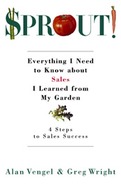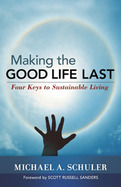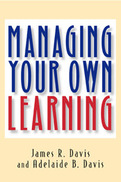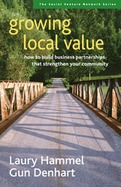2007
2002
- A fundamental rethinking of how organizations are designed by two top executives at one of the "big five" accounting and consulting firms
- Shows why being "zero-minded"-forgetting traditional organizational constraints and starting from scratch-is crucial for success in today's economy
- Explains how to create the zero-space organization: a value-adding, quick-reacting, non-centralized, non-standardized, innovation-generating workplace for dedicated talent
2004
• Packed with useful tips and practical advice that will help salespeople reduce stress and increase satisfaction in their jobs-and make more money too
• Uses an entertaining and unique gardening metaphor that can be applied immediately to any sales situation
• Most books on sales are about a particular technique-this book addresses the "big picture"
Sales has always been a high burnout profession. These days, with the intense focus on quarterly earnings reports, there is more pressure on sales professionals than ever before. The relentless push for immediate results can leave salespeople exhausted, frustrated, and wondering why they ever got themselves into this business. And it can leave sales organizations with a serious turnover problem.
SPROUT! was written by two long-time sales veterans to help their fellow professionals rediscover enthusiasm for their chosen profession and to help sales organizations retain top talent. Vengel and Wright use a page-turning story to outline a new strategy for sales, one that will make salespeople better able to cope with the inevitable ups and downs and take a more effective, long-term approach.
As the book begins, Marsha Molloy has had it. Once a top pharmaceutical sales representative so crackerjack her nickname was Marsha Money, she's been laid low by a tough economy and just plain exhaustion. The once-hungry top producer has seemingly lost her touch and grown indifferent to a sales culture that appears to value faxes, emails, and cell phone chats instead of the relationship building that had been her forte. An avid gardener on a visit to her local nursery, Marsha runs into Bob Rawlings, the store's new owner and an ex-sales professional himself. They begin to chat, and Marsha mentions her career frustrations. Bob replies that he'd had the same problem, but found that the more he began treating his business like his garden, the better his business grew - and a happier, more relaxed salesman appeared. Marsha is intrigued but puzzled - how could sales be like gardening? Bob takes Marsha under his wing and, with the assistance of several other salespeople he's mentored, teaches her the secrets of his sales garden.
By using the authors' sales garden metaphor to change their whole way of thinking about sales, and by adhering to the easy, practical steps outlined in SPROUT! salespeople can beat the career blues, increase their sales, and sustain themselves for the long term.
Shows that sustainability, a concept usually associated exclusively with environmentalism, is the key to a truly fulfilling personal life
Filled with practical advice as well as thoughtful reflections
Illustrated with stories of Schuler's own efforts not always successful to live a sustainable life, as well as insights from science, literature, and a range of spiritual traditions
So many of us are beset by anxiety, depression, loneliness, and spiritual malaise, tense and unhappy despite our gadgets and goodies. Michael Schuler, leader of the nation's largest Unitarian Universalist congregation, says it's because, urged on by an aggressively materialist culture, we too often opt for short-term gratification and long-term denial. In this thoughtful and deeply honest book, he helps us find a life path that leads to treasures of perennial value: a beautiful and healthy earth home, enduring relationships, strong communities, work that contributes to the common good, and play that restores our bodies and lifts our souls.
Deconstructing the assumption that consumption, stimulation, and constant motion comprise the good life, Schuler urges the wholesale embrace of sustainability as both an operational principle and a life-sustaining core value. His book presents sustainability as a coherent frame of reference that can ground us spiritually, heal us internally, and deepen our relationships. Schuler identifies four behavioral principles for living sustainably Pay Attention, Stay Put, Exercise Patience, and Practice Prudence and shows how to apply them in our daily lives. He uses stories from his own life to illuminate the rewards and challenges of sustainable living and shares insights from environmentalists, social commentators, writers, poets, businesspeople, and spiritual leaders.
Sustainability means more than mere survival for individuals, just as for natural and social systems, it's the key to thriving rather than burning out. For those seeking a more profoundly satisfying way of life, Schuler's heartfelt explorations offer a counter intuitive answer: the sustainable life is the good life.
- Describes seven major ways of learning and shows how each can best be used to maximize self-directed learning
- Provides a step-by-step guide to assessing previous learning and designing an action plan for future learning
- Reveals how to expand opportunities for learning and use libraries and the Internet more effectively
2007
• By the cofounder of the Business Alliance for Local Living Economies--the nation's most prominent advocacy organization for local businesses--and the founder of the internationally known children's clothing company Hanna Andersson
• Details specific business practices that will enable local businesses to strengthen both their communities and their bottom lines
• Offers a host of real-world examples from companies such as Greyston Bakery, Wild Planet Toys, Powell's Books, and many others



















